WELCOME TO MUDITA SCHOOL
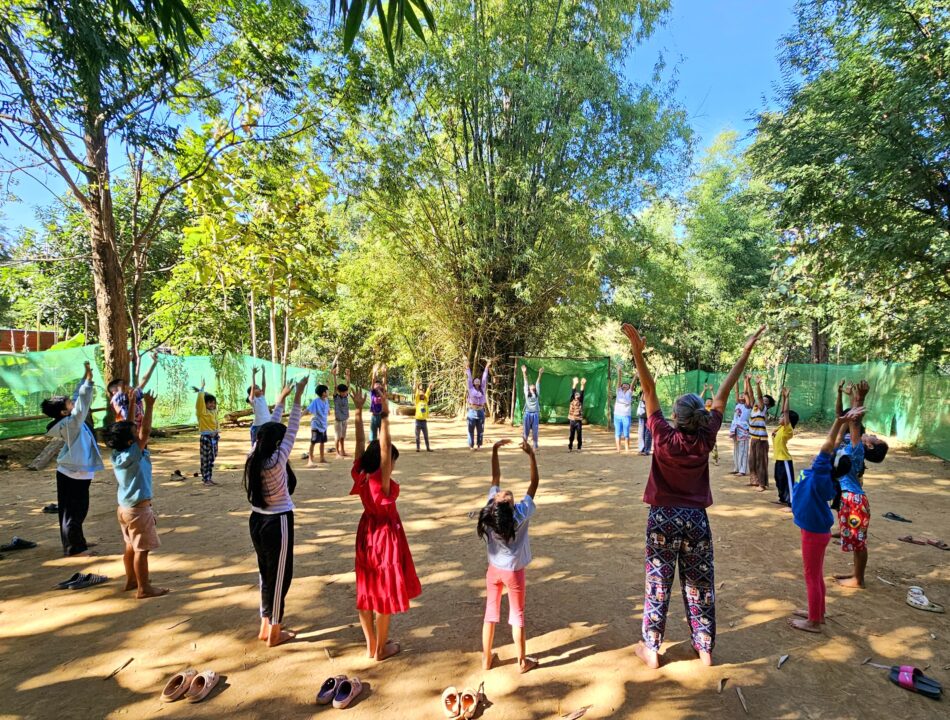
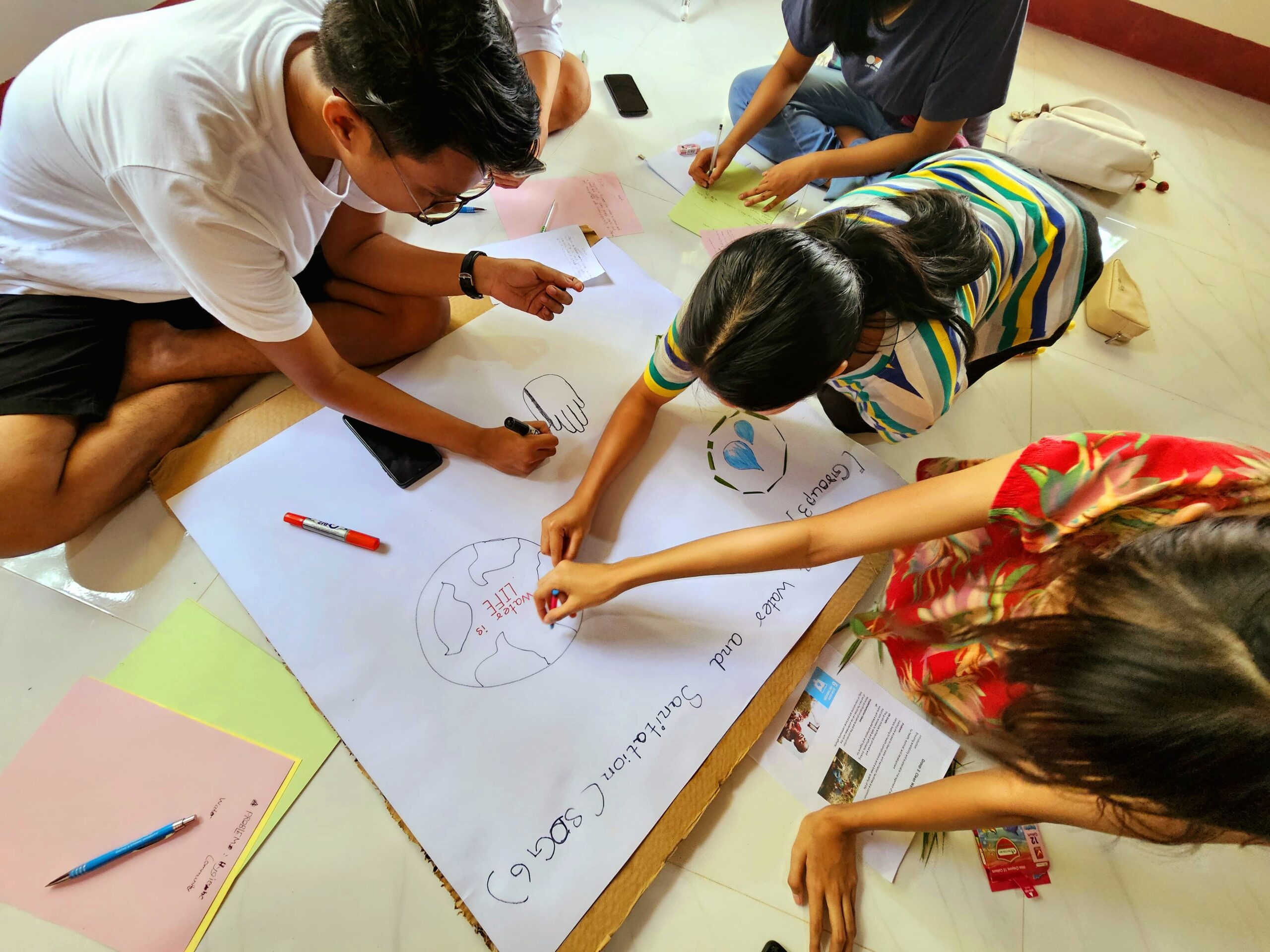
fostering Growth, Connection, and Lifelong Learning
Mudita School opened its doors in 2022 with only a dream and a handful of students. Today, that dream has flourished into a thriving community with over 100 young learners, five new classrooms, six transformative educational programs spanning from primary school through high school, and a dynamic youth program that equips the students with skills for tomorrow. At Mudita School, every day is a testament to the power of education to rebuild lives and spark brighter futures. Our journey is one of growth, hope, and impact. Learn more about the Mudita School and our educational programs.
Watch our new school video and meet the incredible students shaping our community. Experience the vibrant spirit of Mudita come to live.
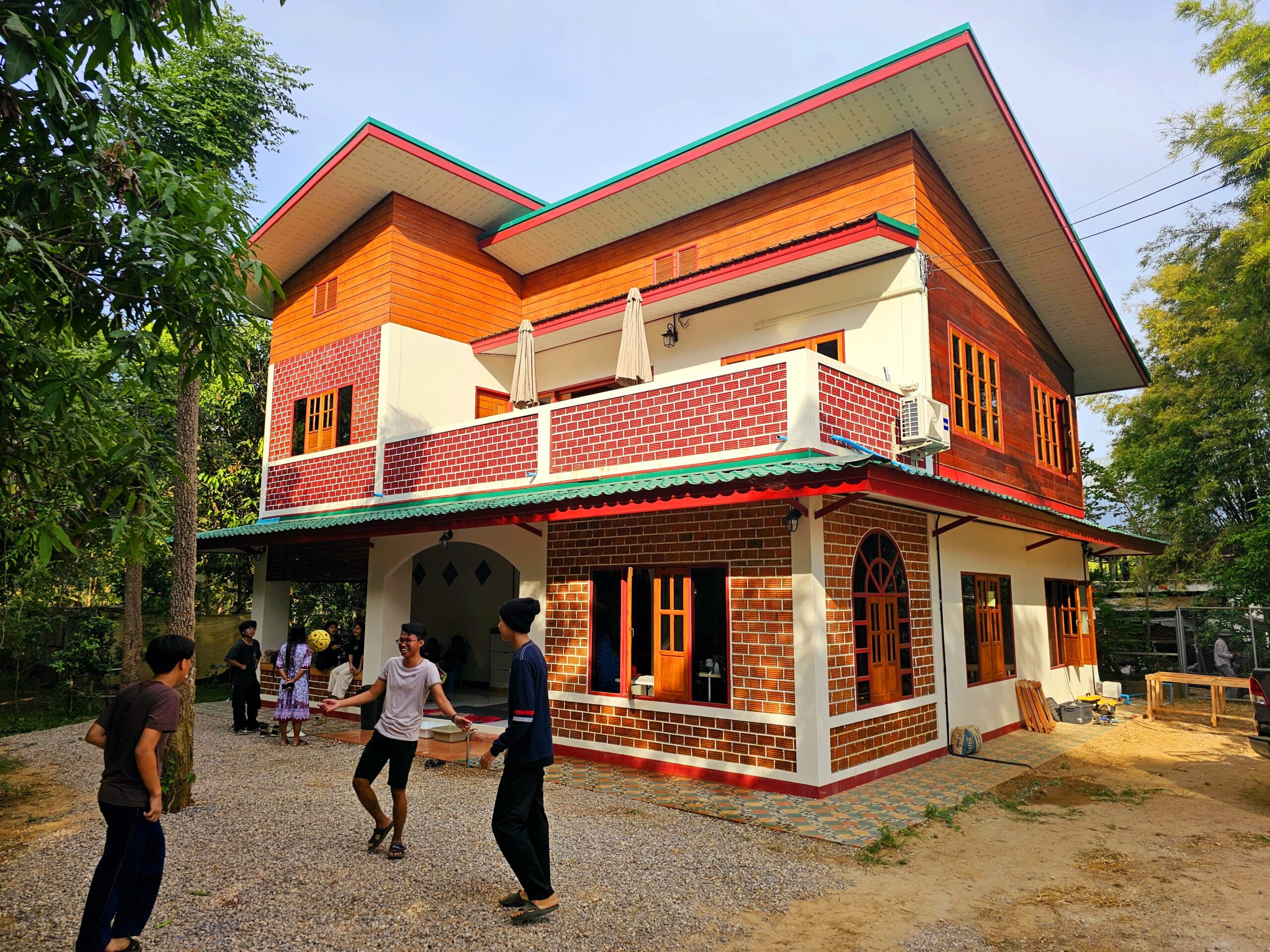
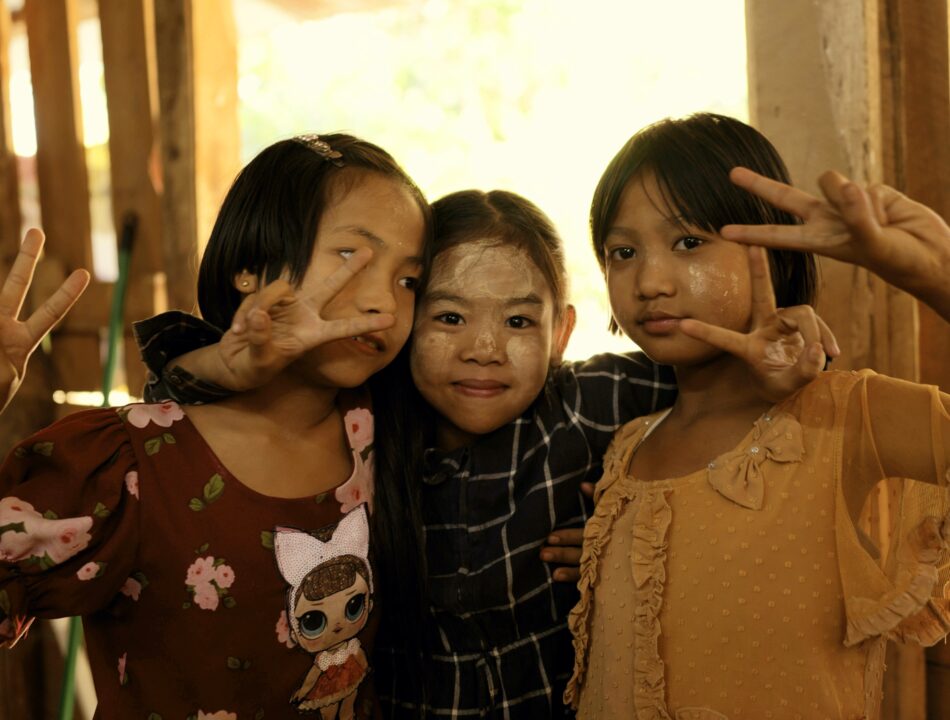
MUDITA: Unique Blend of Learning and Community
Mudita School stands out among the many other migrant schools for its close-knit community. Our school is more than an educational institution; it is a global learning community where international volunteers, local teachers, and students of all ages live, learn, and work together. This harmonious environment fosters safety, acceptance, and mutual respect among all members. As all our students are refugees from Myanmar who have had traumatic experiences in the past, it is essential to provide a secure home with a nurturing atmosphere.
In addition to our educational initiatives, we have established a large eco-farm, transforming our school into a vibrant park. This eco-farm, adorned with beautiful flower gardens and abundant vegetable patches, supplies fresh produce to our community daily. It stands as a symbol of sustainability and self-sufficiency, enriching both our diets and our surroundings.
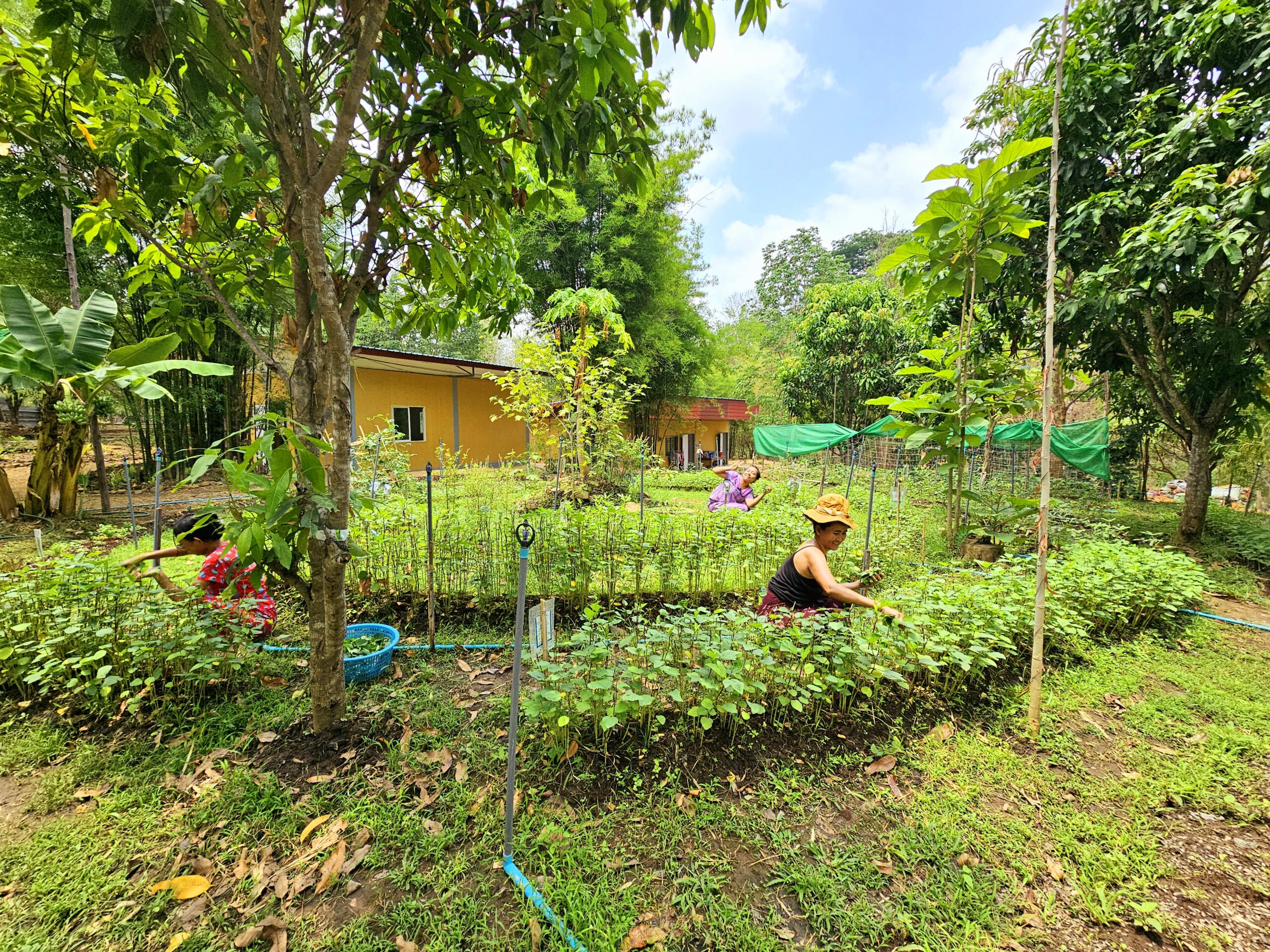
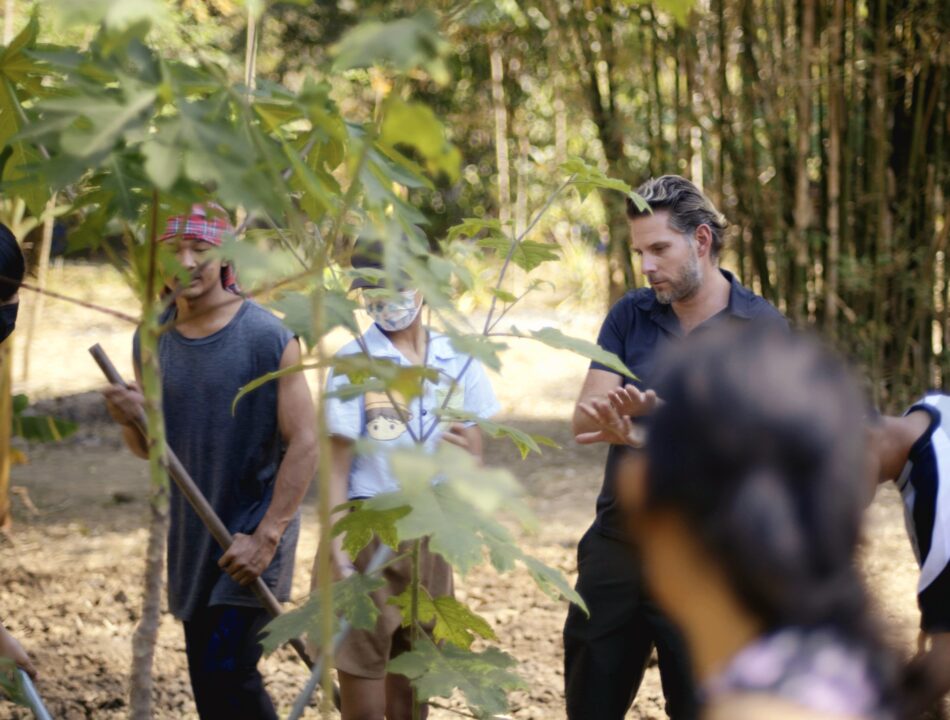
Holistic Pedagogy and Project-Based-Learning
Our unique teaching approach emphasizes on a holistic school environment and project-based learning methods. Unlike many other migrant schools in the area with large class sizes of up to seventy, we maintain small classes of no more than twenty-five students, each supported by three teachers. This setup ensures weaker students receive the inclusive support they need and creates a remarkable class atmosphere where students from three different grades work and learn together in one classroom.
Our project-based learning approach focuses on teaching life skills and community service. Students engage in various activities, such as handicrafts, gardening, global citizenship, and Website design. They take on responsibilities and organize life-relevant projects, such as business ventures and family support initiatives. Moreover, we place particular emphasis on environmental care.
Our flower gardens and lush green fields surround the classrooms and create a beautiful and nurturing learning environment, which emphasizes our responsibility for nature and sustainable practices and has earned us the title of a green eco-school.
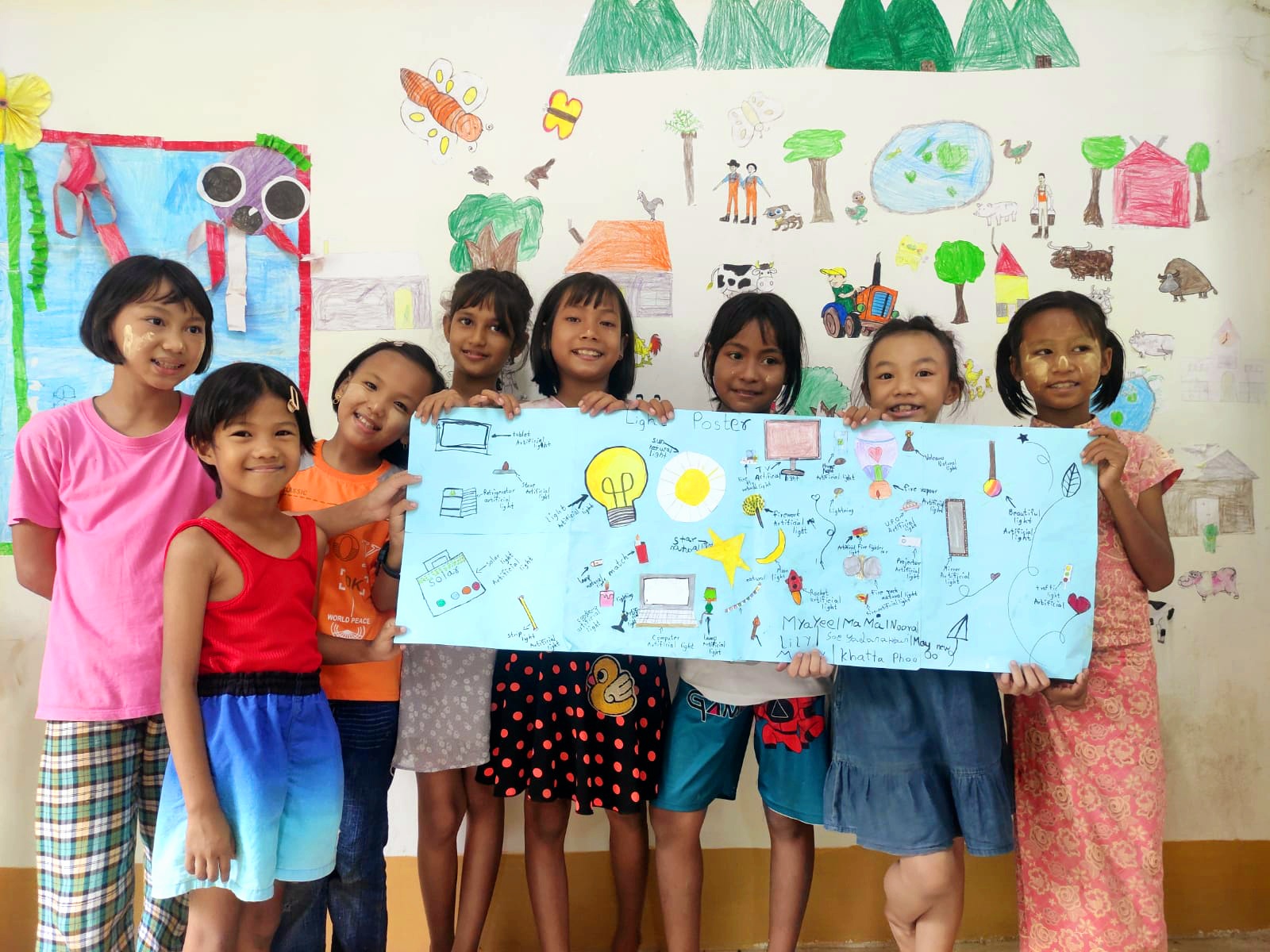
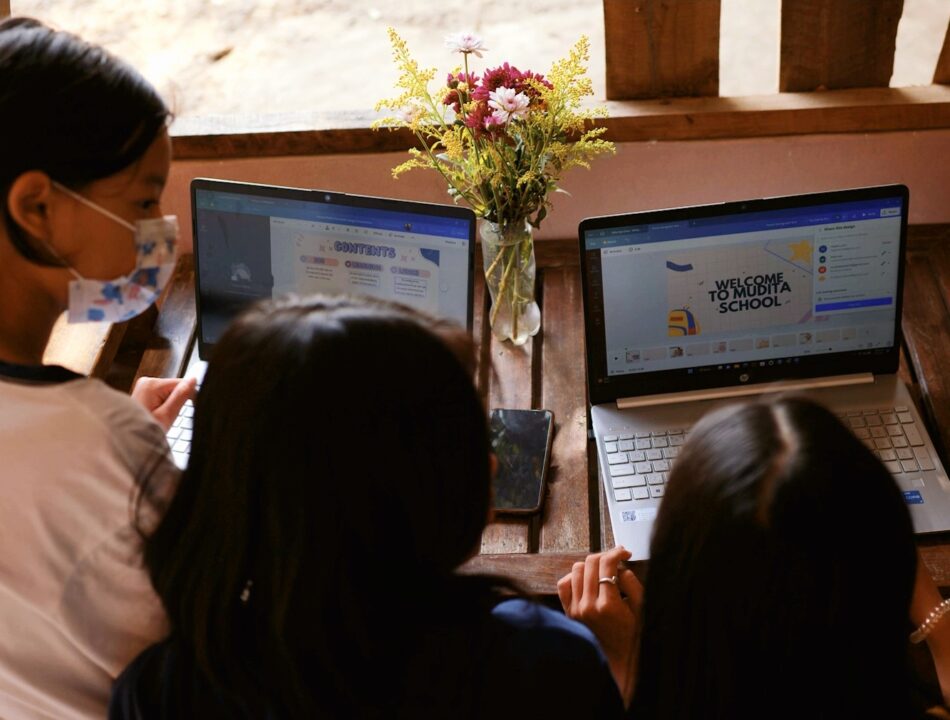
Educational Pathways for All Ages
At Mudita School, we offer a diverse range of educational programs tailored to meet the needs of students from primary through high school. Beginning with our primary and middle school programs, students are immersed in a bilingual curriculum that blends Burmese tradition with modern teaching methods. Our high school programs, including the pre-GED (Grade 9) and GED (Grade 10), are conducted entirely in English, preparing students for the international high school diploma.
In addition to our core academic offerings, we provide after-school youth programs that equip students with 21st-century skills such as computer programming, software development, and various handicrafts. Our vocational training programs offer practical tailoring and sustainable agriculture skills, promoting holistic development beyond the classroom.
Explore our educational sections below for more details on each program and join us on this educational journey from the early years through high school and beyond.
Find out more about our Educational Levels
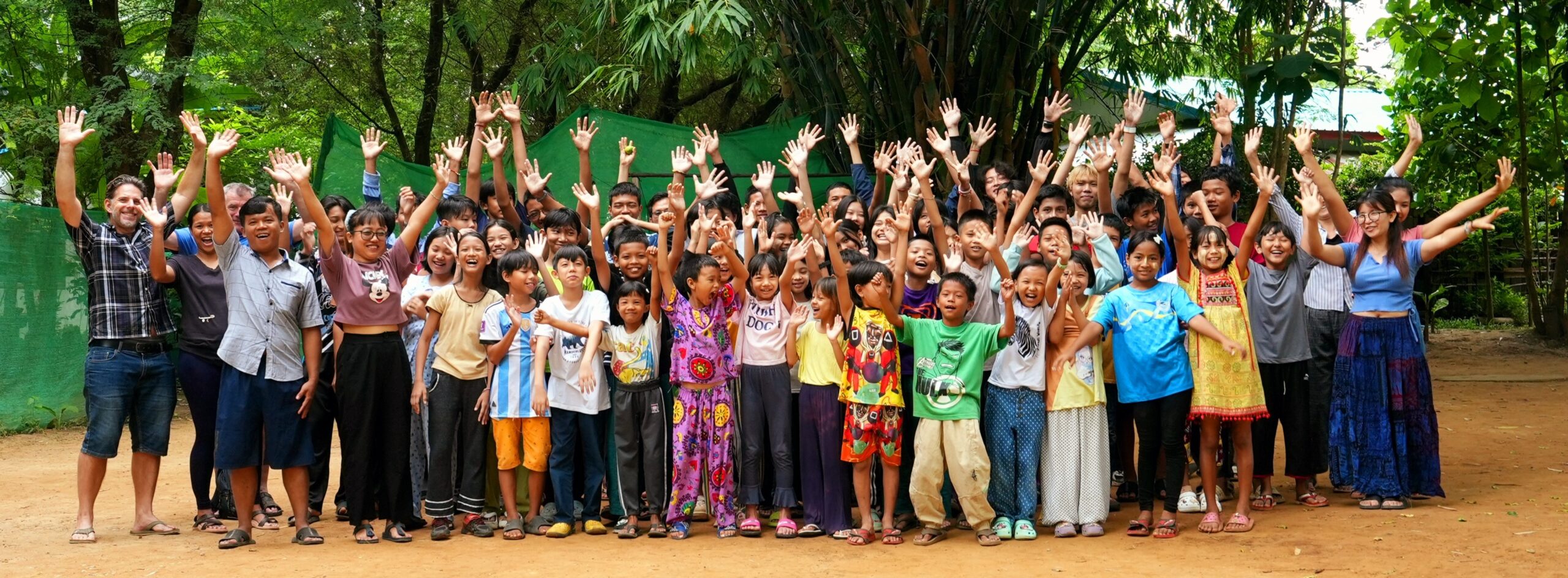
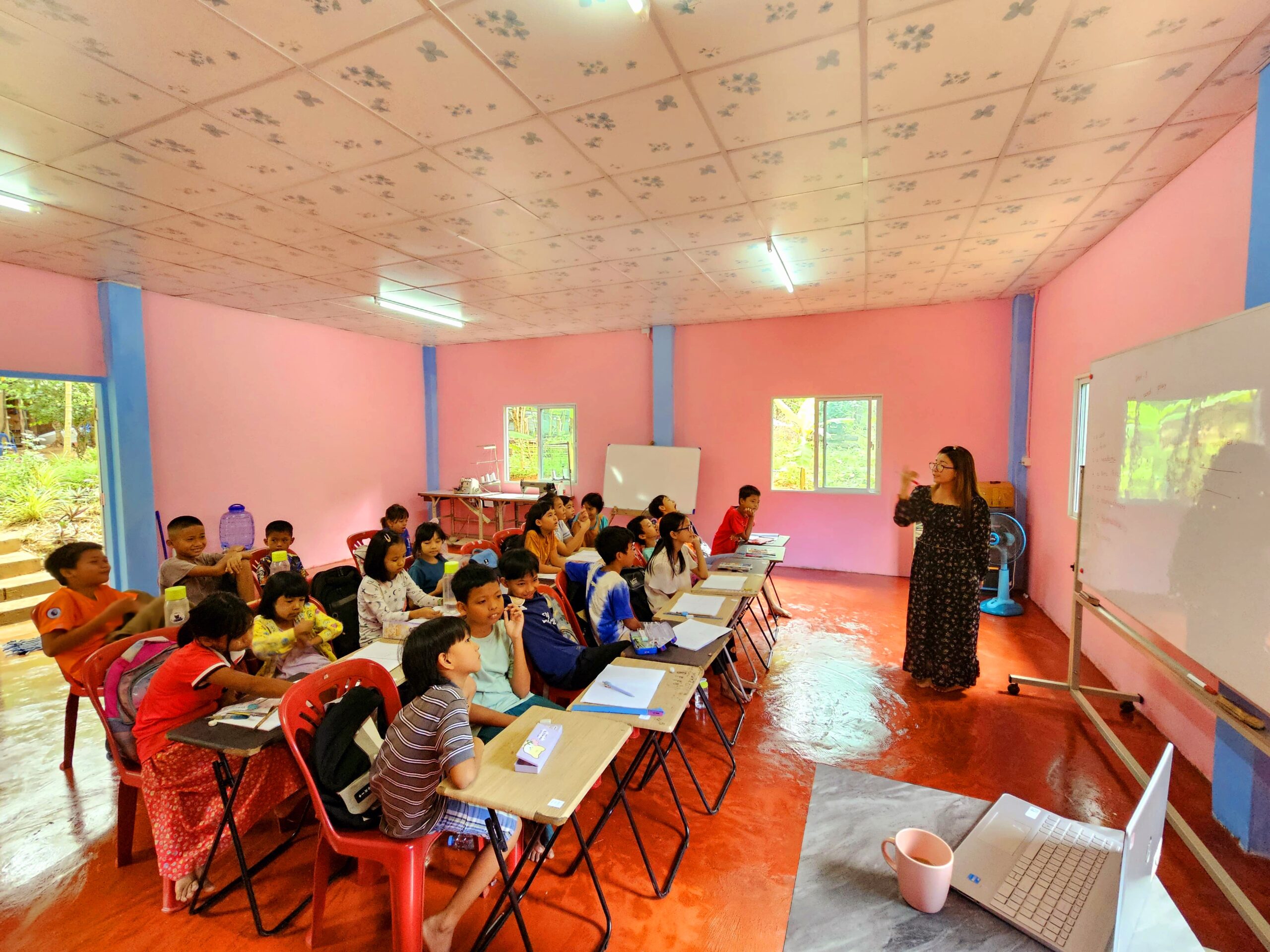
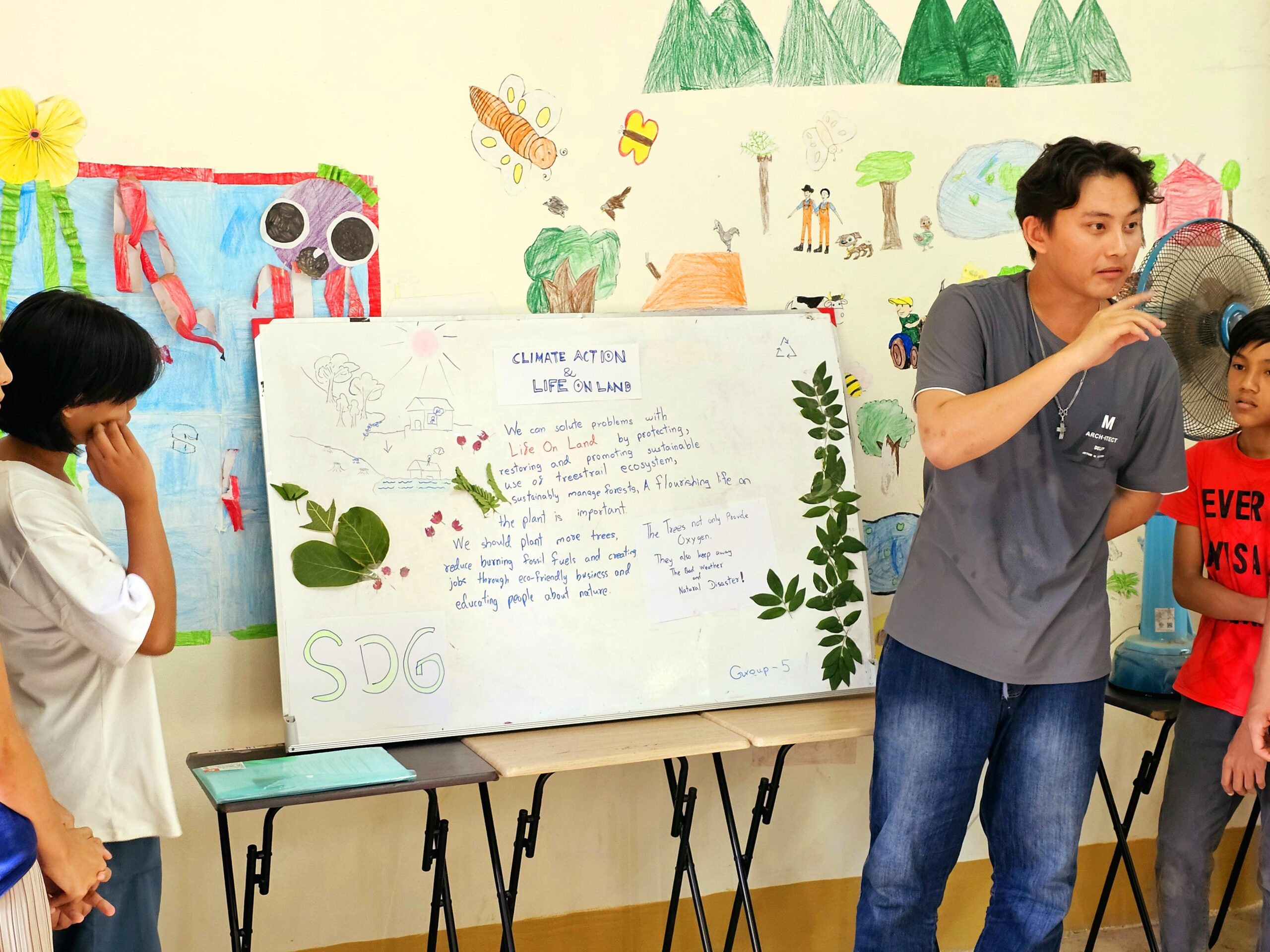
Family Support Program
The Family Support Program at Mudita School is a vital initiative that began in 2022. Recognizing the immense need for support among refugee families in Mae Sot, many of whom live in dire conditions, we launched this program to provide critical assistance and create stronger community ties. Mae Sot, a central hub for refugees from Myanmar, is home to thousands of displaced individuals living in rudimental bamboo huts, facing severe food insecurity, joblessness, and health issues.
The program serves a dual purpose: addressing the urgent needs of refugee families and offering our high school students opportunities for social engagement and charity work. This initiative is a cornerstone of our GED education program, particularly within our SDG Subject (Sustainable Development Goals), and it involves collaborating with our international partner schools.
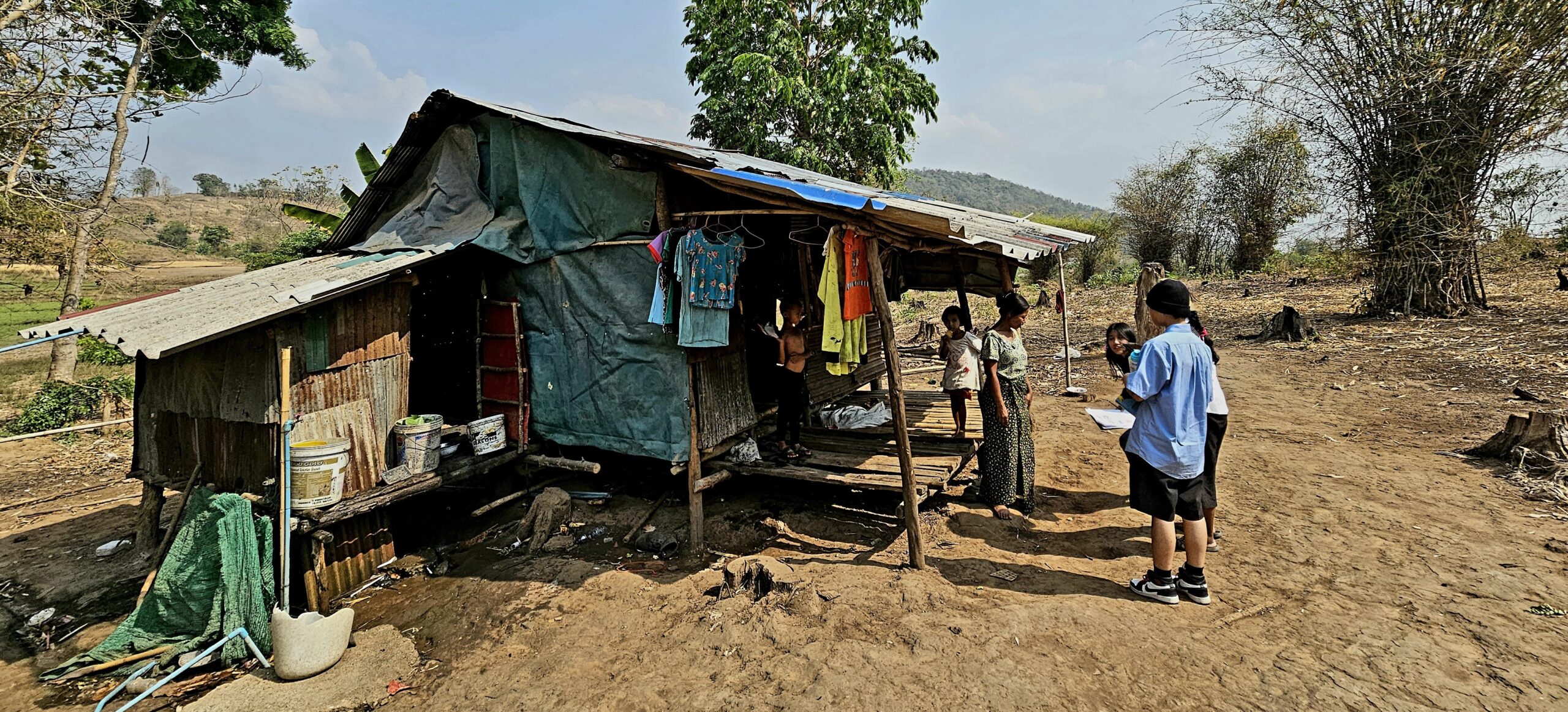
The Family Support Program involves several key steps:
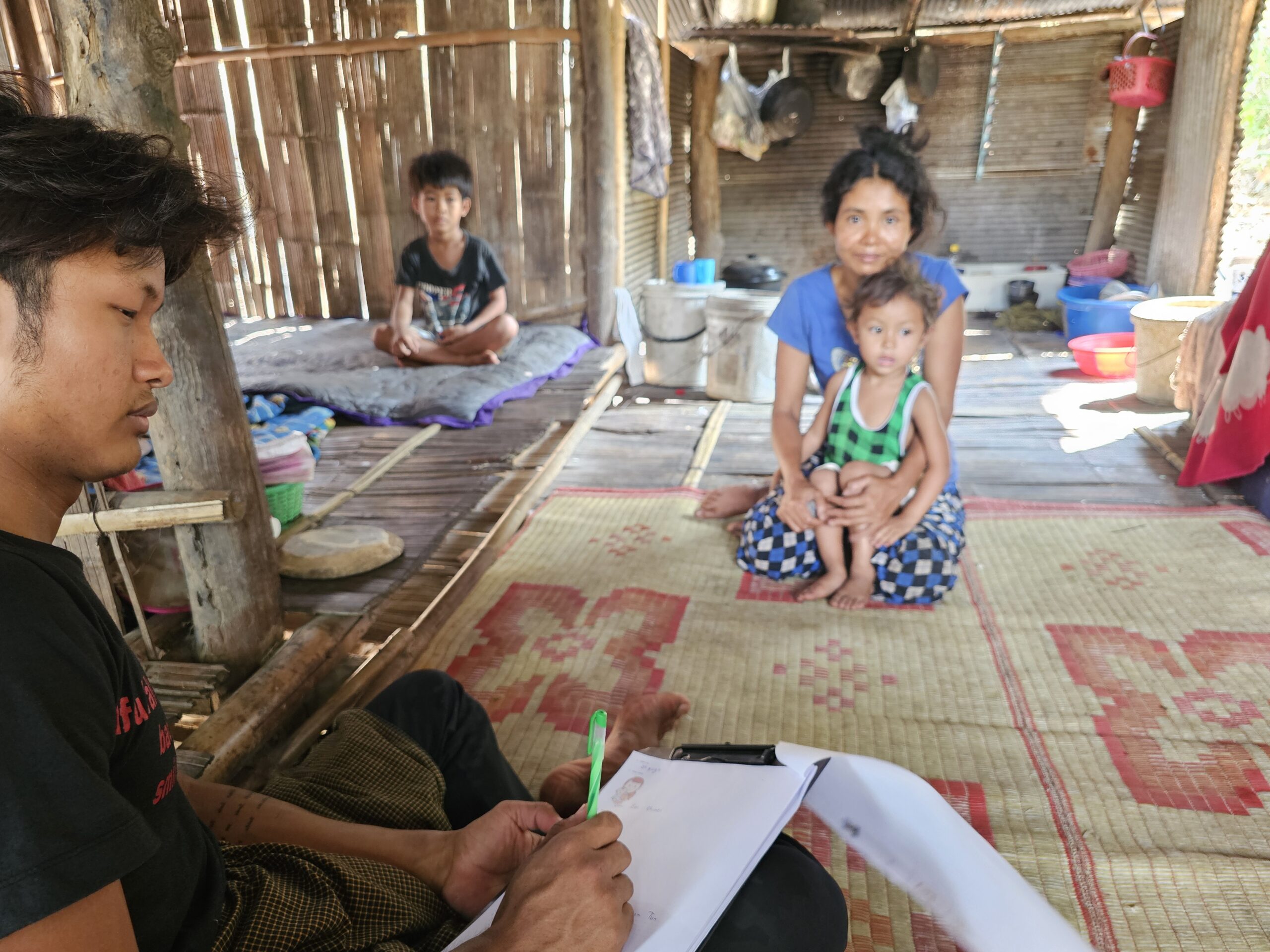
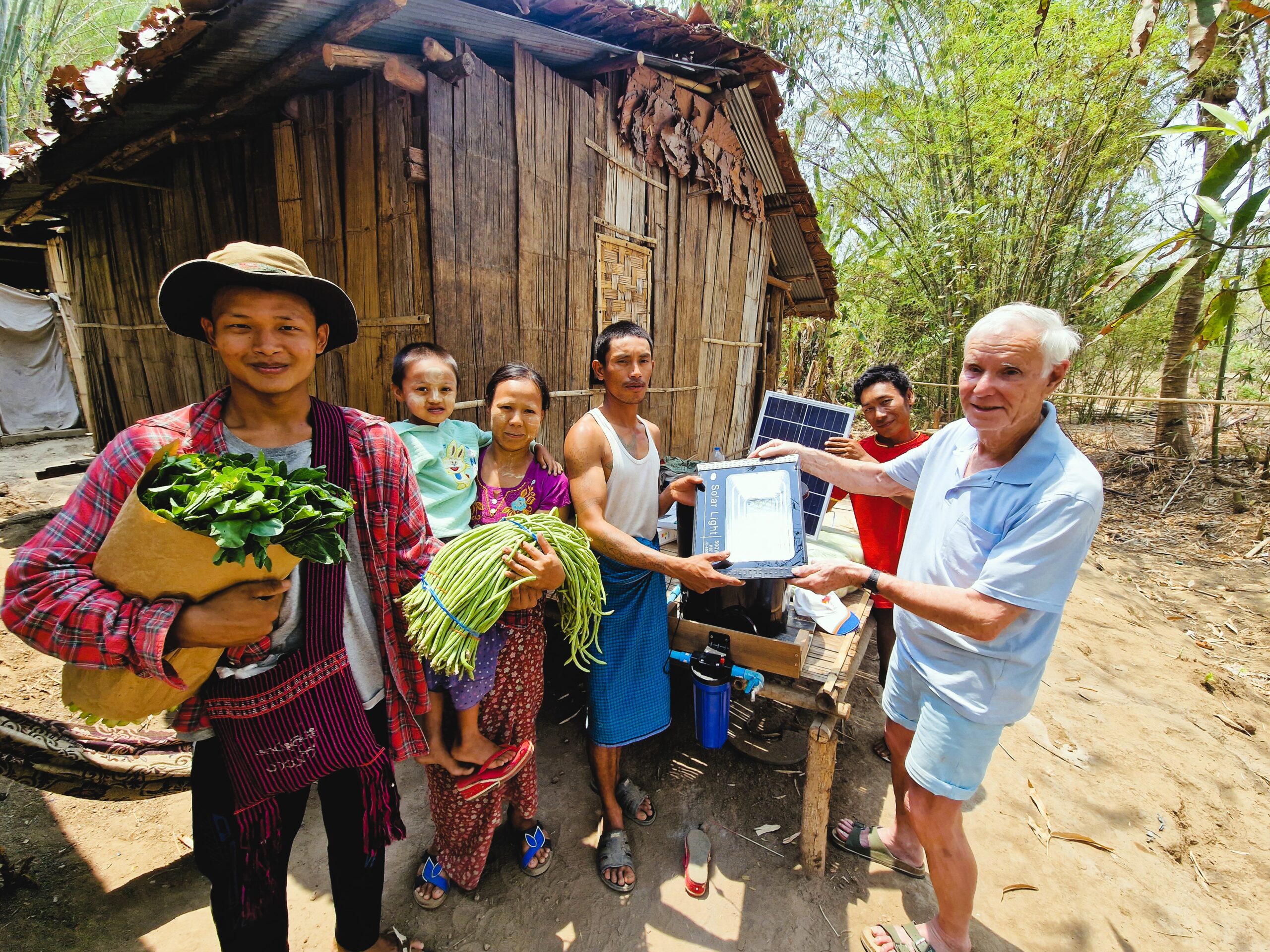
The cooperation within the Family Support Program started with one partner school but has now expanded to all three partner schools in Germany and Thailand. This expansion allows us to support more families and develop a stronger, more resilient community.
By integrating this program into our curriculum and involving international partners, we aim to create compassionate, globally aware students who actively contribute to improving the lives of those around them. The Family Support Program exemplifies our commitment to holistic education, combining academic success with social responsibility and community service.
Watch our first Family Support Video Below to learn more about the situation of Burmese refugee families and how to support them.
Want to know more? Follow up with our second Video HERE
Mudita School Magazin
At Mudita School, education goes far beyond textbooks—it’s about preparing students for life. Our philosophy is rooted in holistic, project-based learning that fosters creativity, teamwork, leadership, and real-world skills. One shining example of this approach is our school magazine project, developed by our Pre-GED class (9th grade students). Over the past three months, these students have taken on the challenge of running their own magazine, functioning like a real news agency.
Through this project, students step into the roles of journalists, editors, designers, and researchers. They learn to plan and collaborate as a team, take initiative, and express their voices through meaningful content. From writing quality essays to conducting interviews with volunteers and partner schools, the students have explored a wide range of topics—including travel and lifestyle, mental and physical health, youth culture, and community issues.
In the process, they’ve developed essential skills for the future: critical thinking, media literacy, tech skills such as photo and video editing, layout and design, information research and filtering, and writing high-quality articles. These are not just academic abilities—they are tools for empowerment and independence, which lie at the heart of Mudita’s mission.
This project beautifully reflects what Mudita education stands for: engaging young minds, nurturing talent, and encouraging students to become confident, capable, and compassionate individuals who are ready to shape their own paths after school.
We invite you to explore the impressive result of their hard work and creativity—the Mudita School Magazine—by clicking the link below. Let yourself be inspired by their stories and discoveries, and join us on this journey of growth and expression.


Youth Program
In response to a significant influx of young Burmese refugees fleeing the civil war in Myanmar, Mudita School has established a comprehensive youth program. The military junta in Myanmar has implemented conscription to draft young people into the army. These young individuals are forced to serve in the military, participating in conflicts they wish to avoid. Many young people have fled the country, seeking refuge in Thailand to escape this dire situation.
In Mae Sot, especially around our school, hundreds of young people have settled, building simple shelters and living in cramped conditions. For example, a group of around 25 young individuals live together in a single bamboo hut near our school. These refugees have heard of Mudita School's good reputation and are seeking education and support, having had to end their university or high school education abruptly.
Recognizing their needs, we have expanded our educational offerings with a new two-story community center. This center provides youth programs, vocational training, and various seminars for young refugees and their families to support their educational and personal development.
Program Structure The youth program runs every afternoon, Monday to Sunday, with each course lasting two hours.
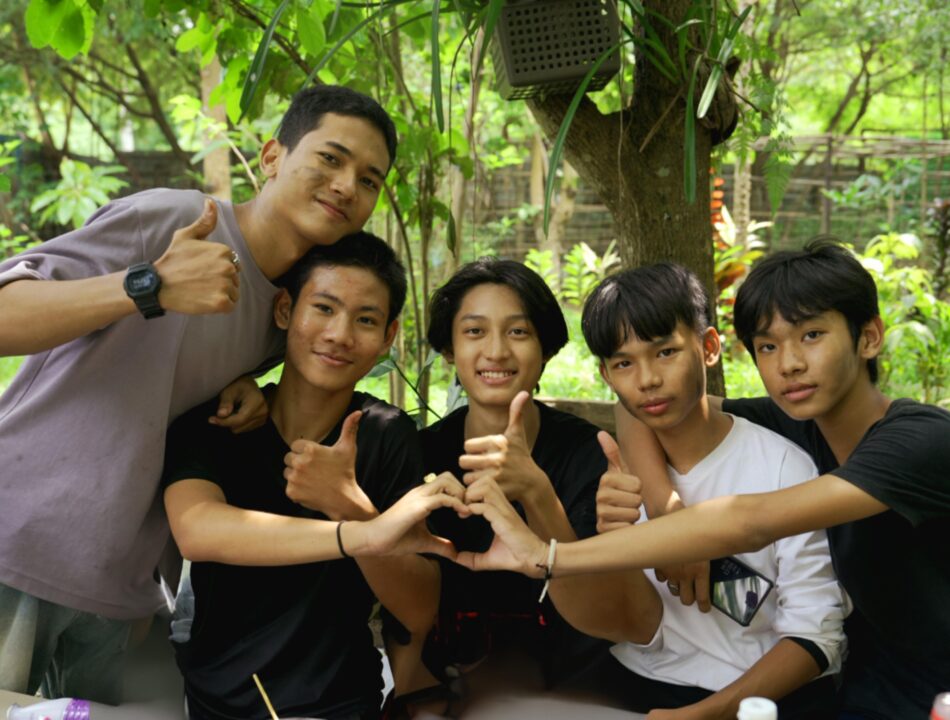
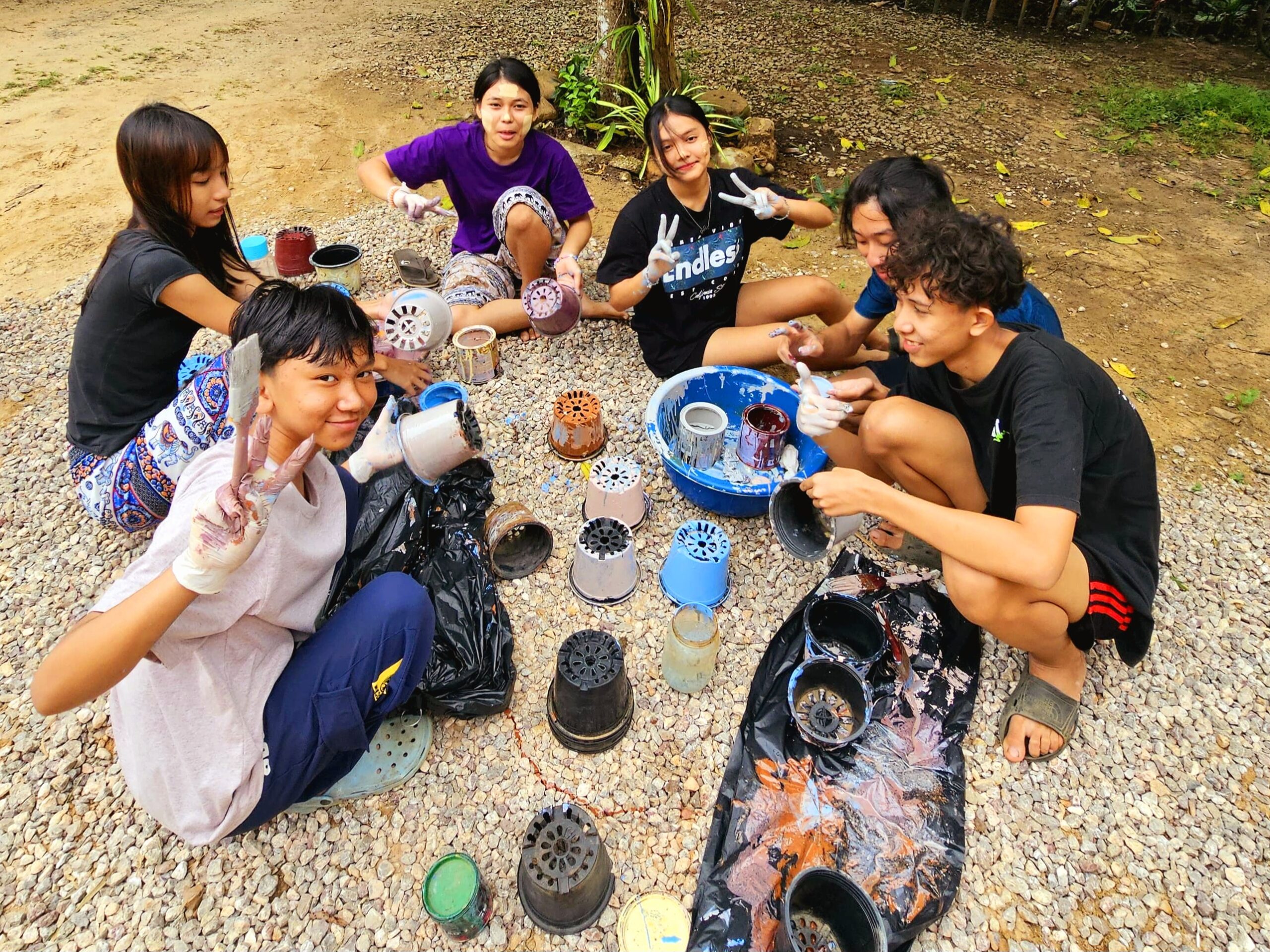
The courses include:
The youth program at Mudita School addresses the urgent educational needs of young Burmese refugees, providing them with valuable skills and opportunities for personal and professional growth. Through a combination of academic courses, vocational training, and emotional support, the program fosters a holistic development approach. This initiative supports the refugees in rebuilding their lives and strengthens our community by creating informed, skilled, and compassionate individuals.
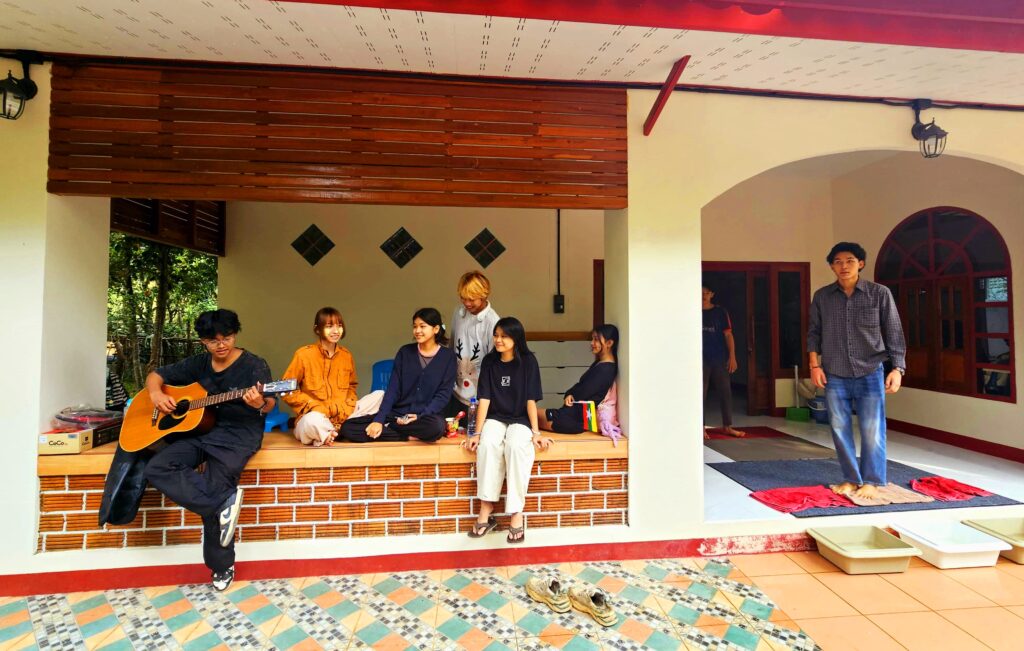
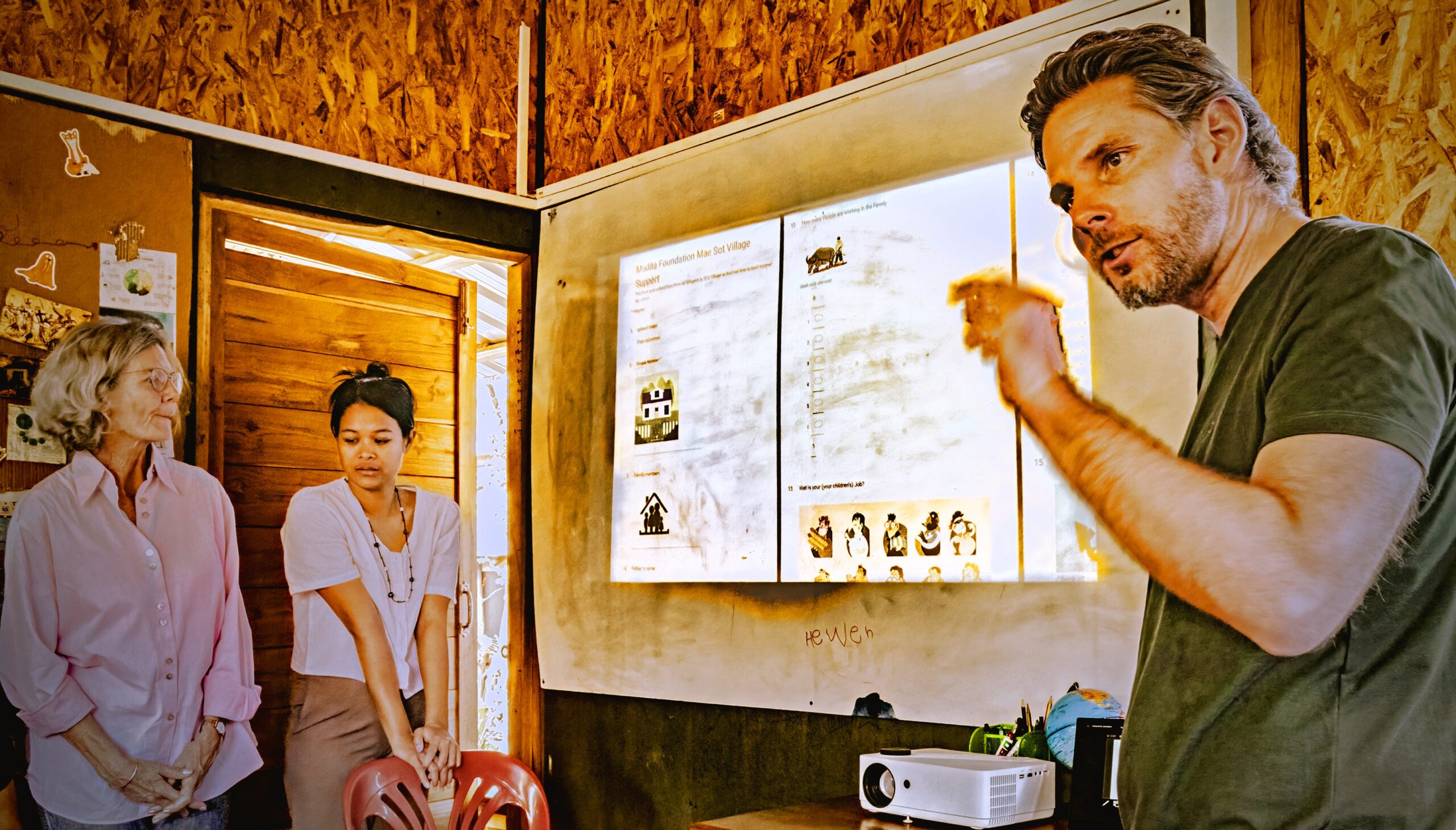
International Volunteer Program
Since its inception, the Mudita Foundation has been integrally supported by volunteers from around the world. The Foundation emphasizes cultural exchange and fosters a global mindset among students. We have built a diverse community of local teachers, students, and volunteers from various countries.
Role of Volunteers: Volunteers contribute significantly to the school's operations and enrichment in various ways. They work hands-on with the eco-farm, engage in building and handicraft projects, assist in creating and improving teaching materials, and actively participate in classroom teaching. Their involvement spans all aspects of the school, utilizing their skills, knowledge, and ideas to enhance the learning environment.
Volunteers with specialized skills, such as photography, music, or teaching, are integrated into our curriculum, enriching the educational offerings. For instance, a photographer might lead a stop-motion video course, while a musician offers guitar lessons. Often specialized teachers with much experience in their field give training to our local teachers. This approach leverages the unique abilities of each volunteer, providing a diverse and enriched learning experience for students. This makes volunteers feel valued and brings specialized expertise into our classrooms, creating a vibrant and dynamic educational atmosphere.
Integration and Impact:
Volunteers are provided with accommodation on campus, allowing us to host around 8 to 10 volunteers at a time. Living on campus, they become an integral part of the school community, interacting closely with students and staff. This arrangement fosters a sense of global citizenship among students, as they are exposed to different cultures and experiences, promoting tolerance and understanding.
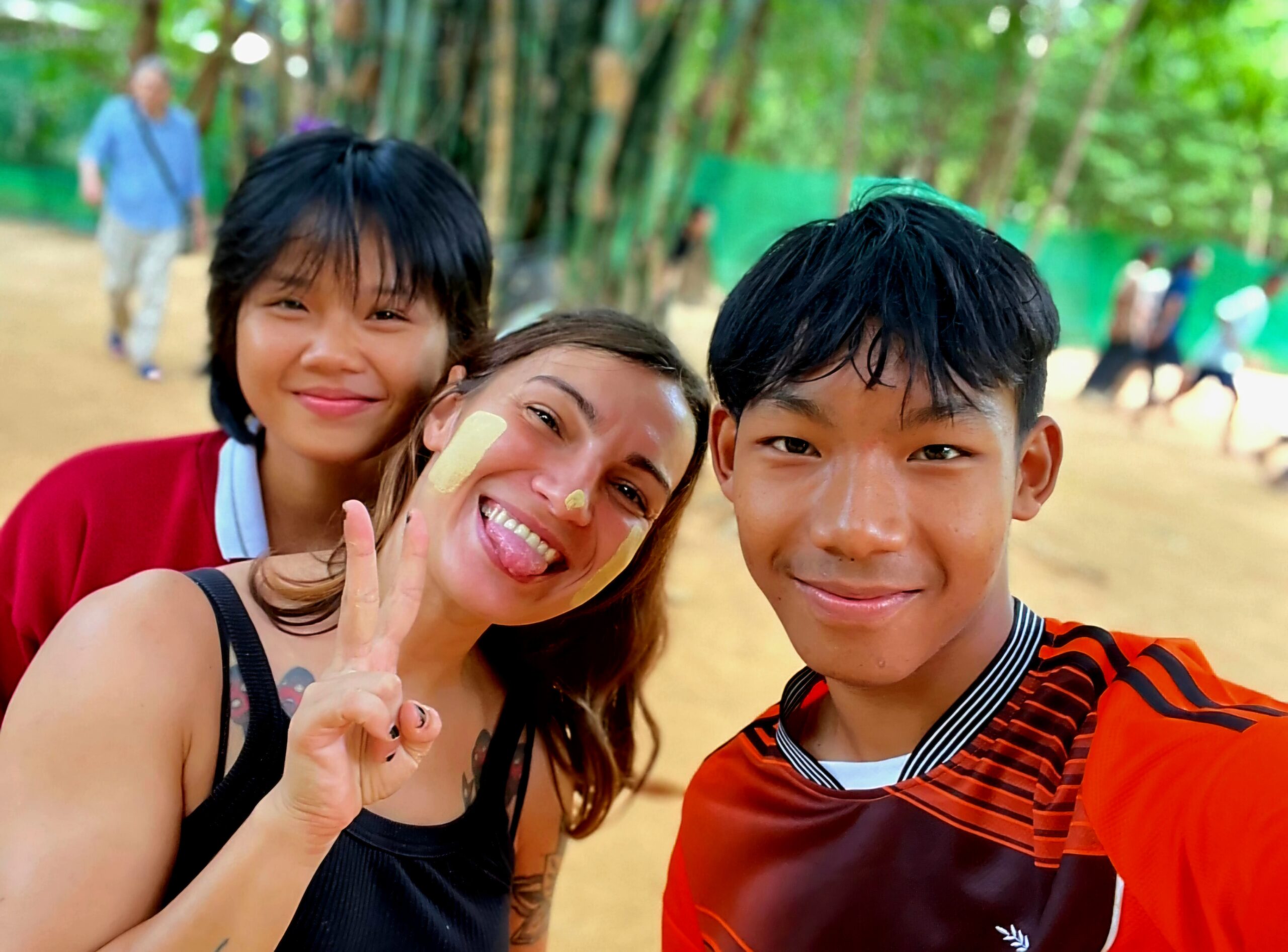
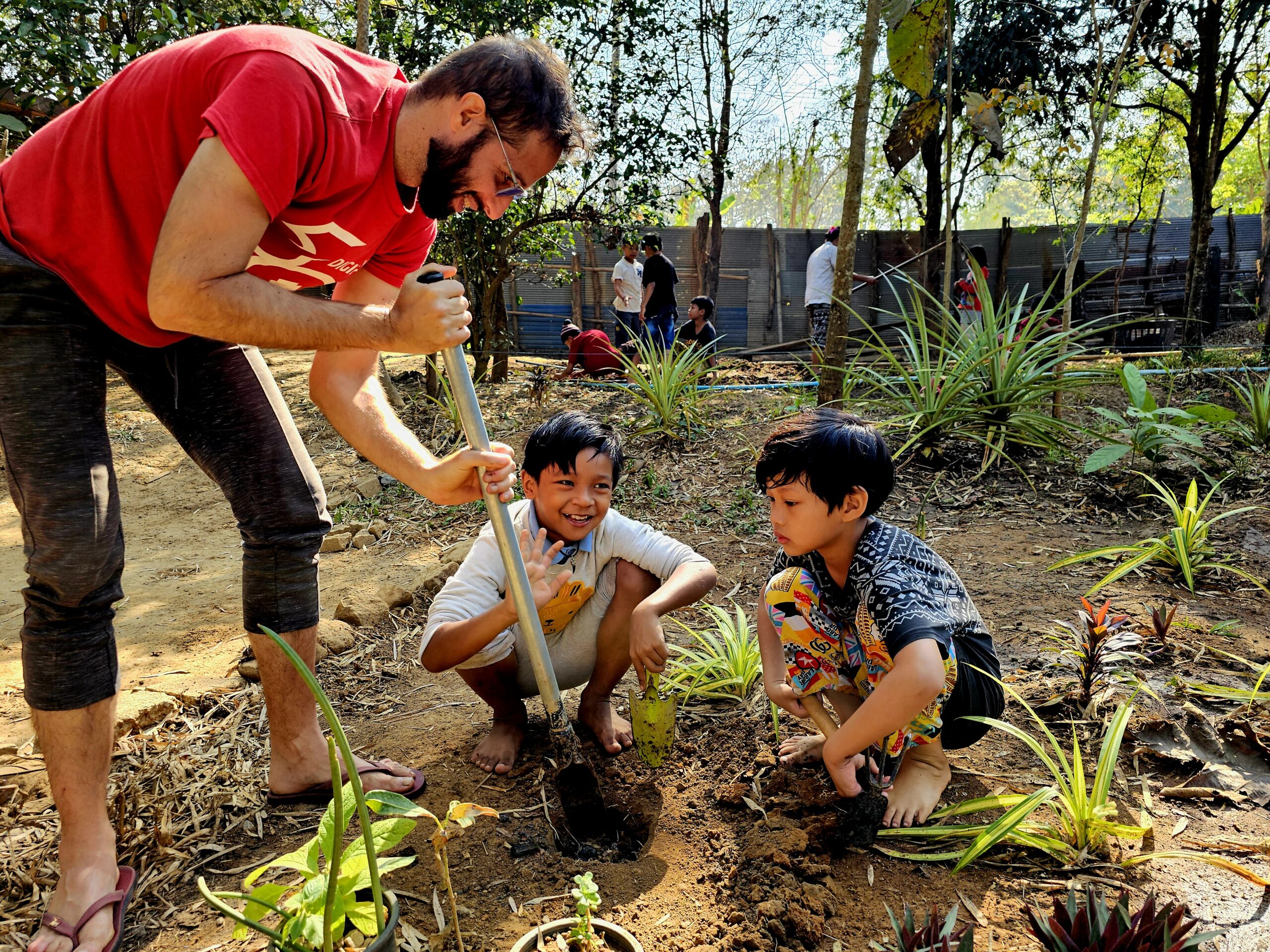
Seminar Center
Welcome to our newly completed Seminar Center, a two-story facility nestled within a beautiful garden. Opened in August 2024, it serves as a hub for transformative education and community engagement. The center offers a diverse range of programs, including vocational training for youth and community members, psychology courses, teacher training, and computer classes. With its spacious kitchen and community garden, it also provides the perfect space for hosting youth activities and well-being seminars. Explore more about our vibrant programs in the Seminar Center section.
Seminar Program at Mudita:
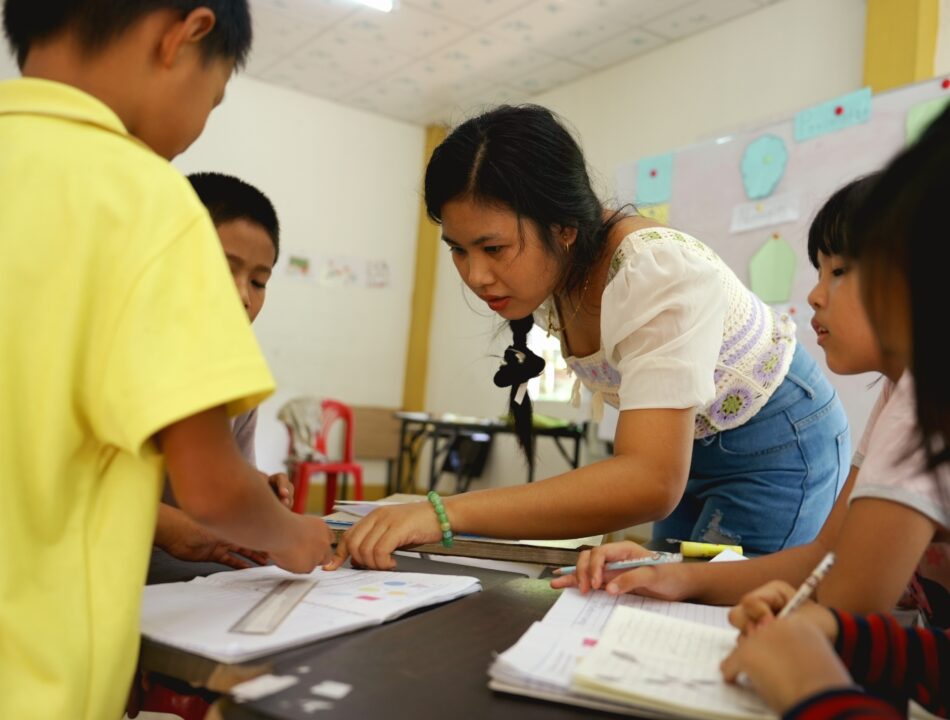
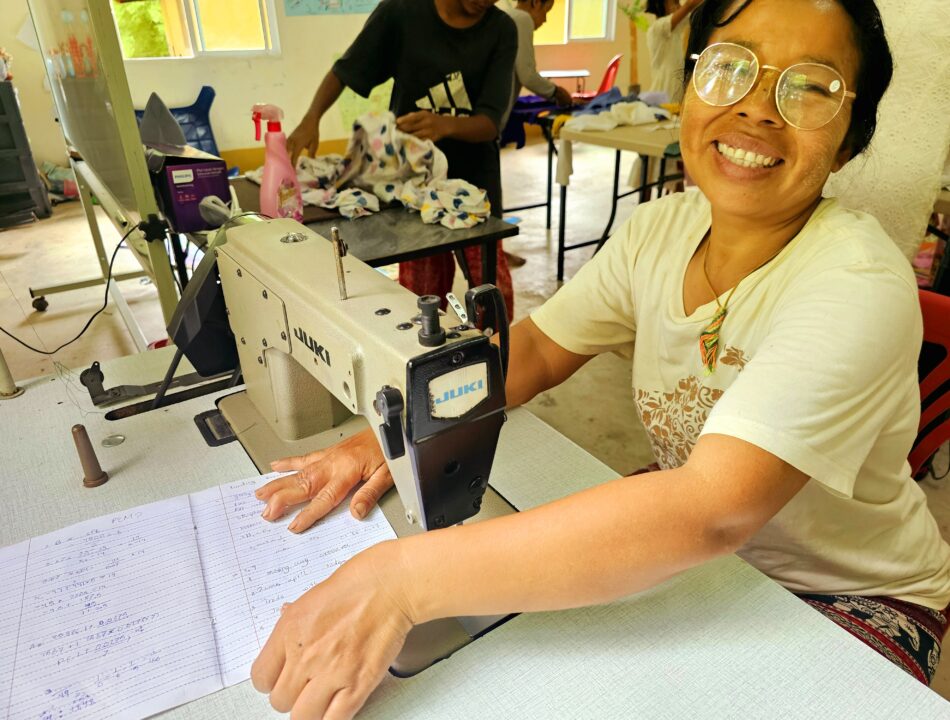
Building a bright future...
Mudita School and the Mudita Foundation have made significant strides in just Three years, profoundly impacting the lives of Burmese refugee children and the broader community in Mae Sot. Through a tailored curriculum, project-based learning, and the integration of international volunteers, we provide students with academic excellence and essential life skills, fostering a sense of global citizenship. Our programs' rapid growth and success reflect our commitment to education and community service. Our new Community Center enhances this mission by serving as a hub for engagement and development. As we finalize the Thai foundation and look towards acquiring new land to build a larger educational complex, our vision includes expanding our reach to support more students, community members, and international volunteers.
Mudita School and the Mudita Foundation are dedicated to creating a nurturing, inclusive, and dynamic educational environment. We strive to build a future where every student is equipped with the tools to succeed, every family has the support they need, and the entire community can grow together in harmony and understanding. With these ambitious plans, we are dedicated to continuing our service to the community, extending our impact, and fostering a harmonious and understanding environment where every individual can thrive.
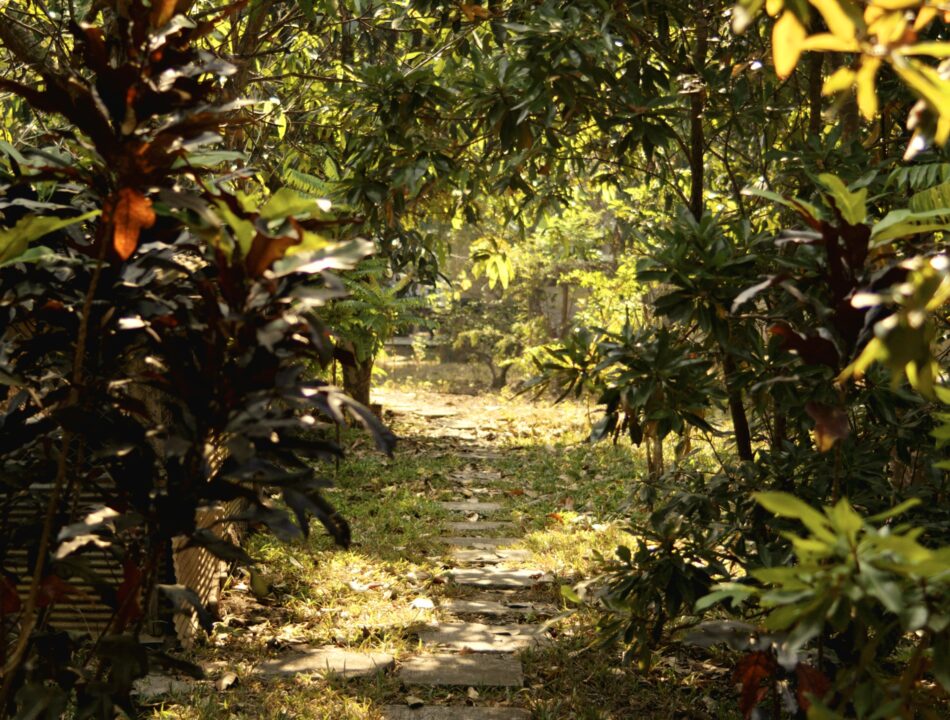
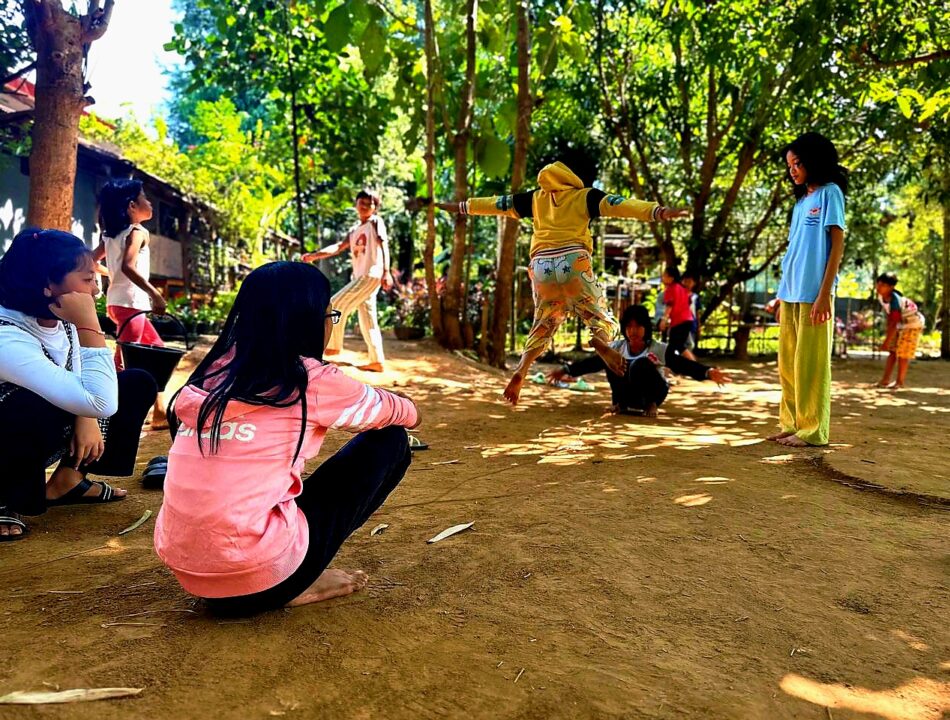
AND NOW, WHAT CAN YOU DO?




